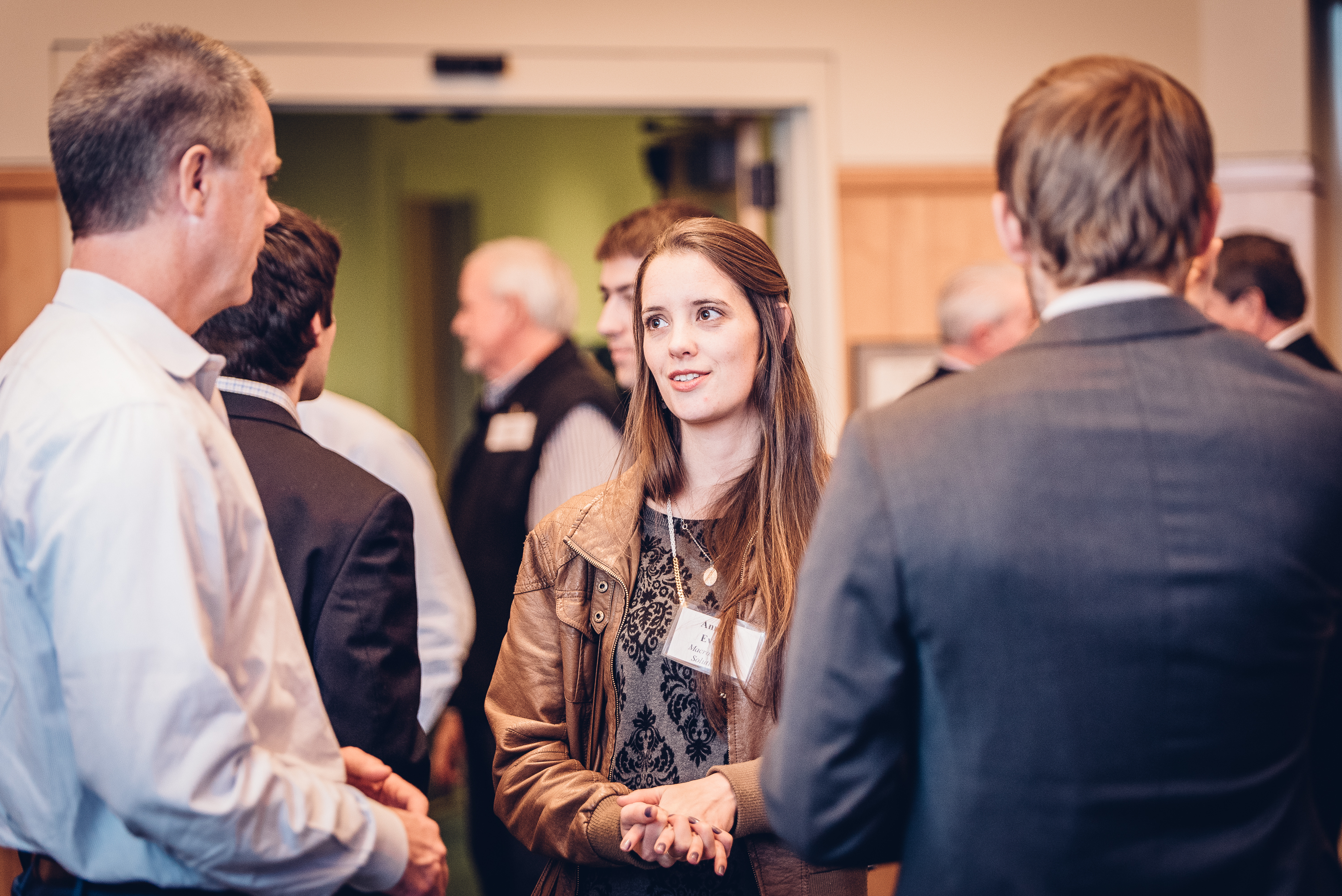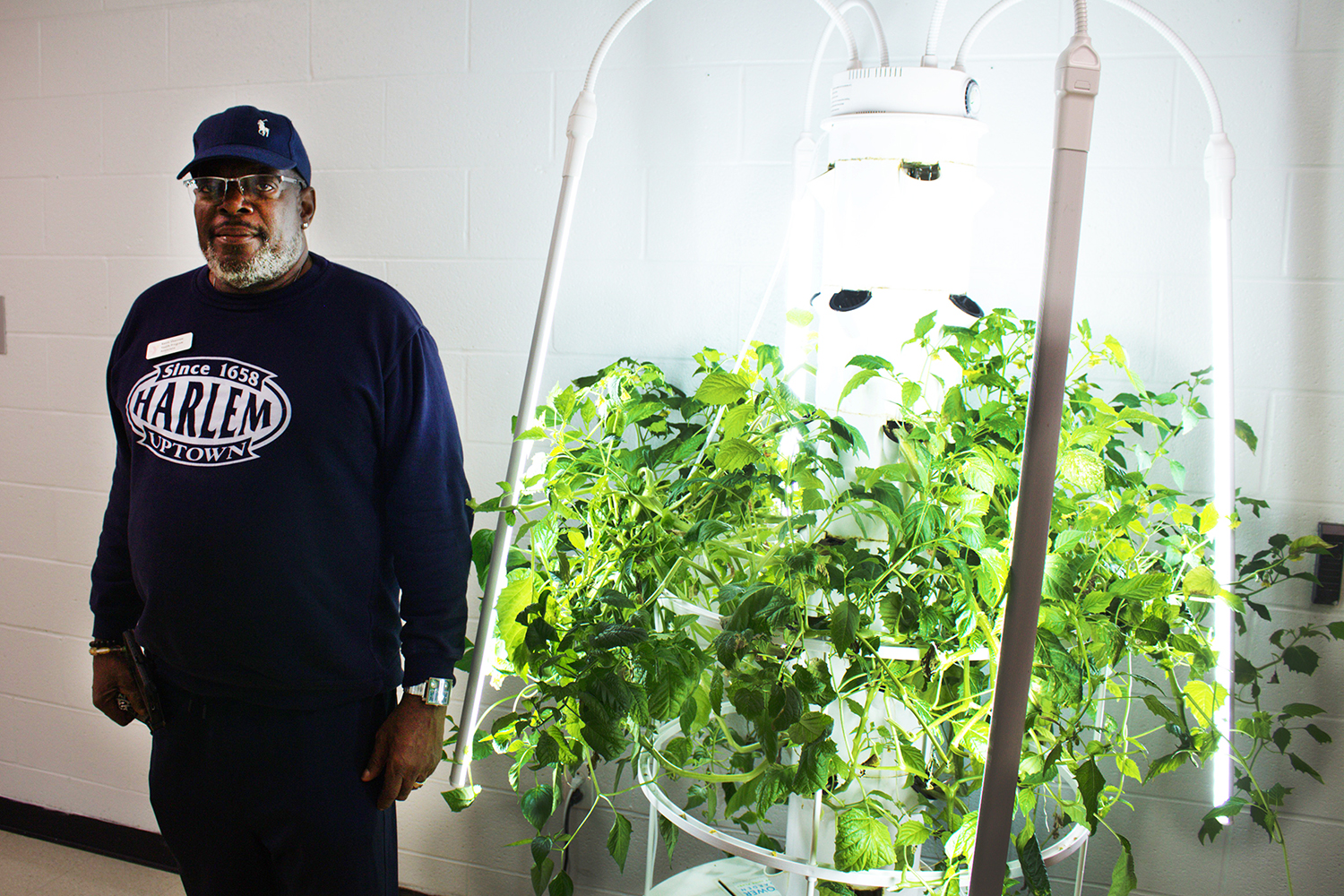
Graduate nursing student Samantha Nesbeth wants to find a way to use genetics, instead of hair transplants, to help men and women regrow thinning hair.
“When you lose your hair, you see yourself as a different person,” said Nesbeth. “You don’t know who you are without hair. It can be disabling and depressing. Your hair is part of who you are,” said the Meriden native, who is planning a career as a nurse practitioner specializing in dermatology.
Meanwhile, Peter Vannorsdall, a sophomore majoring in mechanical engineering, has some ideas for creating consumer electronics, including a device that would help get young children to wear their seatbelts. He won’t reveal too many details, until he gets a patent, but has collaborated with other innovators to develop his idea.
“I have a crude but functioning prototype, but right now I’ve maxed out my capabilities. I’m hoping to connect with the mentors who can help me continue to make progress,” said Vannorsdall, a native of Camden, Maine. He’s at a career turning point, he said, trying to decide whether to become an entrepreneur or seek an internship at a large employer.

Nesbeth and Vannorsdall were among 200 UConn students who attended the kickoff for Innovation Quest (iQ) recently, hoping for advice, encouragement, and mentoring from experts in new-business development.
Now in its fifth year, the program is open to all students in any discipline. The iQ program connects student teams with alumni mentors and other experts who have experience in building companies and can help take a project from an idea to the marketplace. No idea is too unusual to be considered, but novel ideas with high potential for commercialization are more likely to win. The top finalists will share $30,000 in prize money and receive a coveted invitation to the iQ summer InQbator.
“Entrepreneurship, innovation, and creativity are alive and well at UConn,” said iQ director Rich Dino, noting that the number of participants this year exceeded last year.
“This is our fifth year, and each year it gets better and better,” said alumnus Keith Fox ’80, an entrepreneur, executive, and philanthropist who brought the iQ program to UConn after seeing its success in California. “We had a record number of applicants last year, and we have high hopes for this year. Our participants are enrolled in many levels and areas of study. This is truly a university-wide program.”
Entrepreneurship, innovation, and creativity are alive and well at UConn. — Rich Dino
Nearly 500 students have participated in iQ since its launch, said Dean John A. Elliott, and several of the successful innovators attended a reception prior to kickoff. Elliott said he is pleased that the program is thriving and the hard work of Fox, Dino, and the many dedicated mentors has fostered its success.
IQ mentor Hugh Tansey ’74, the worldwide product director at Thermo Fisher Scientific, said he enjoys his role with iQ, which also includes conducting some of the summer workshops for finalists in the competition.
“This is fun for me,” he said. “I feel like I’m giving back to UConn, but learning something at the same time, by examining businesses in fields that are different from mine.
“The students come in with a whole range of business knowledge,” Tansey said. “Many have well-formed ideas but no knowledge about business. Ultimately launching products is a very complicated business. An idea has to be a good fit for the market.
“An entrepreneur has to have the passion to carry them through the difficult times,” he added, noting that even students who don’t succeed on their initial attempt will learn valuable business lessons in the process.
Mentor Larry Yakaitis ’81, president of Mantana Group, a software company in Mystic, Conn., said he was a roommate of Fox and through him he learned of the program.
“I wouldn’t miss it for anything,” he said. “This is a great way to connect with students and learn from them. Every year the quality of the students, the teams and the ideas are escalating to new levels, both in terms of the content and scope of what they’ve come up with. The connections they’re making in the business world are amazing.”
One piece of advice that Yakaitis would offer to students is that they can’t thrive in isolation.
“What I’ve learned from my experience is that you can have an exceptional person or idea, but without an exceptional team, you won’t succeed,” he said.

During the first phase of Innovation Quest, teams prepare their competition application, work on prototypes, and discuss their ideas with the mentors, which sharpens their thinking and their product.
The field is narrowed down over the course of several months. Ultimately, the top applicants are invited into an accelerated training program dubbed the inQbator. It has been described as like learning a year’s worth of business courses in six weeks.
During the the last inQbator session, the teams present their now-refined plans to an audience comprised of angel investors and venture capitalists, who then begin monitoring the progress of these new startups, with an eye toward potential investment.
Freshman Vincent Turnier, an electrical engineering major, has an idea for a website that would match students who have start-up ideas with others who have the expertise to help them – almost a ‘dating’ site for entrepreneurs.
He would promote the service to colleges, as an educational website. He has been working on the project for some time and has had help from his professors.
Turnier, who hails from Port-au-Prince, Haiti, said he thinks he is a strong candidate for the program because of his motivation and determination.
“I’m the kind of person who has a lot of ideas,” he said. “I think any inventor has to be able to accept the challenges and the reality that you might fail. I can see myself as a business man. It comes naturally. You learn through the process. I’m an engineering student who also loves business.”



